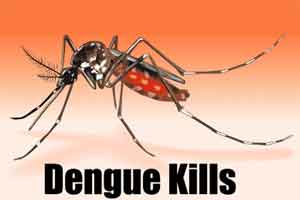- Home
- Medical news & Guidelines
- Anesthesiology
- Cardiology and CTVS
- Critical Care
- Dentistry
- Dermatology
- Diabetes and Endocrinology
- ENT
- Gastroenterology
- Medicine
- Nephrology
- Neurology
- Obstretics-Gynaecology
- Oncology
- Ophthalmology
- Orthopaedics
- Pediatrics-Neonatology
- Psychiatry
- Pulmonology
- Radiology
- Surgery
- Urology
- Laboratory Medicine
- Diet
- Nursing
- Paramedical
- Physiotherapy
- Health news
- Fact Check
- Bone Health Fact Check
- Brain Health Fact Check
- Cancer Related Fact Check
- Child Care Fact Check
- Dental and oral health fact check
- Diabetes and metabolic health fact check
- Diet and Nutrition Fact Check
- Eye and ENT Care Fact Check
- Fitness fact check
- Gut health fact check
- Heart health fact check
- Kidney health fact check
- Medical education fact check
- Men's health fact check
- Respiratory fact check
- Skin and hair care fact check
- Vaccine and Immunization fact check
- Women's health fact check
- AYUSH
- State News
- Andaman and Nicobar Islands
- Andhra Pradesh
- Arunachal Pradesh
- Assam
- Bihar
- Chandigarh
- Chattisgarh
- Dadra and Nagar Haveli
- Daman and Diu
- Delhi
- Goa
- Gujarat
- Haryana
- Himachal Pradesh
- Jammu & Kashmir
- Jharkhand
- Karnataka
- Kerala
- Ladakh
- Lakshadweep
- Madhya Pradesh
- Maharashtra
- Manipur
- Meghalaya
- Mizoram
- Nagaland
- Odisha
- Puducherry
- Punjab
- Rajasthan
- Sikkim
- Tamil Nadu
- Telangana
- Tripura
- Uttar Pradesh
- Uttrakhand
- West Bengal
- Medical Education
- Industry
India adds to the 30-fold rise in dengue menace across the world, Shripad Naik

WHO has shared the data for South-East Asia Region of which India is a member country, and concluded with the fact that India constitutes 19 percent of total dengue cases in 2013
The monsoon-led dengue menace has increased 30-fold in the last 50 years, and India’s worry to tackle the menace is not subsided by the fact shared by WHO; 19 percent of total dengue cases in 2013, out of the total 39,89,35 dengue cases in South-East Asia Region in 2013, 75,808 cases were in India. India is a member of the SEAR, hence under the measurement radar of WHO for global report on dengue cases.
Elaborating on the government’s plans to curb this water-borne menace, the Minister of State for Health Shripad Naik is reported to have said that new national guidelines for effective clinical management of dengue fever is under currently under progression. It has been developed, and is now shared with the state ministers, implied Naik. The government has approved a plan by committee of secretaries which has been sent to states for implementation for prevention and control of the disease.
As reported by PTI
He said that the number of Sentinel Surveillance Hospitals (SSH) with laboratory support has been increased to 499 across the country while test kits are provided to these institutes through National Institute of Virology (Pune) free of cost.
The Minister said that the government also issues regular advisories to the states and in 2015, advisories were issued from Union Health Minister to all Chief Ministers, union health secretary to all chief secretaries and DGHS to all state health secretaries.
He said that periodic reviews too are conducted by the Ministry to take stock of preparedness and respond to emergency situations.
The monsoon-led dengue menace has increased 30-fold in the last 50 years, and India’s worry to tackle the menace is not subsided by the fact shared by WHO; 19 percent of total dengue cases in 2013, out of the total 39,89,35 dengue cases in South-East Asia Region in 2013, 75,808 cases were in India. India is a member of the SEAR, hence under the measurement radar of WHO for global report on dengue cases.
Elaborating on the government’s plans to curb this water-borne menace, the Minister of State for Health Shripad Naik is reported to have said that new national guidelines for effective clinical management of dengue fever is under currently under progression. It has been developed, and is now shared with the state ministers, implied Naik. The government has approved a plan by committee of secretaries which has been sent to states for implementation for prevention and control of the disease.
As reported by PTI
He said that the number of Sentinel Surveillance Hospitals (SSH) with laboratory support has been increased to 499 across the country while test kits are provided to these institutes through National Institute of Virology (Pune) free of cost.
The Minister said that the government also issues regular advisories to the states and in 2015, advisories were issued from Union Health Minister to all Chief Ministers, union health secretary to all chief secretaries and DGHS to all state health secretaries.
He said that periodic reviews too are conducted by the Ministry to take stock of preparedness and respond to emergency situations.
Meghna A Singhania is the founder and Editor-in-Chief at Medical Dialogues. An Economics graduate from Delhi University and a post graduate from London School of Economics and Political Science, her key research interest lies in health economics, and policy making in health and medical sector in the country. She is a member of the Association of Healthcare Journalists. She can be contacted at meghna@medicaldialogues.in. Contact no. 011-43720751
Next Story


